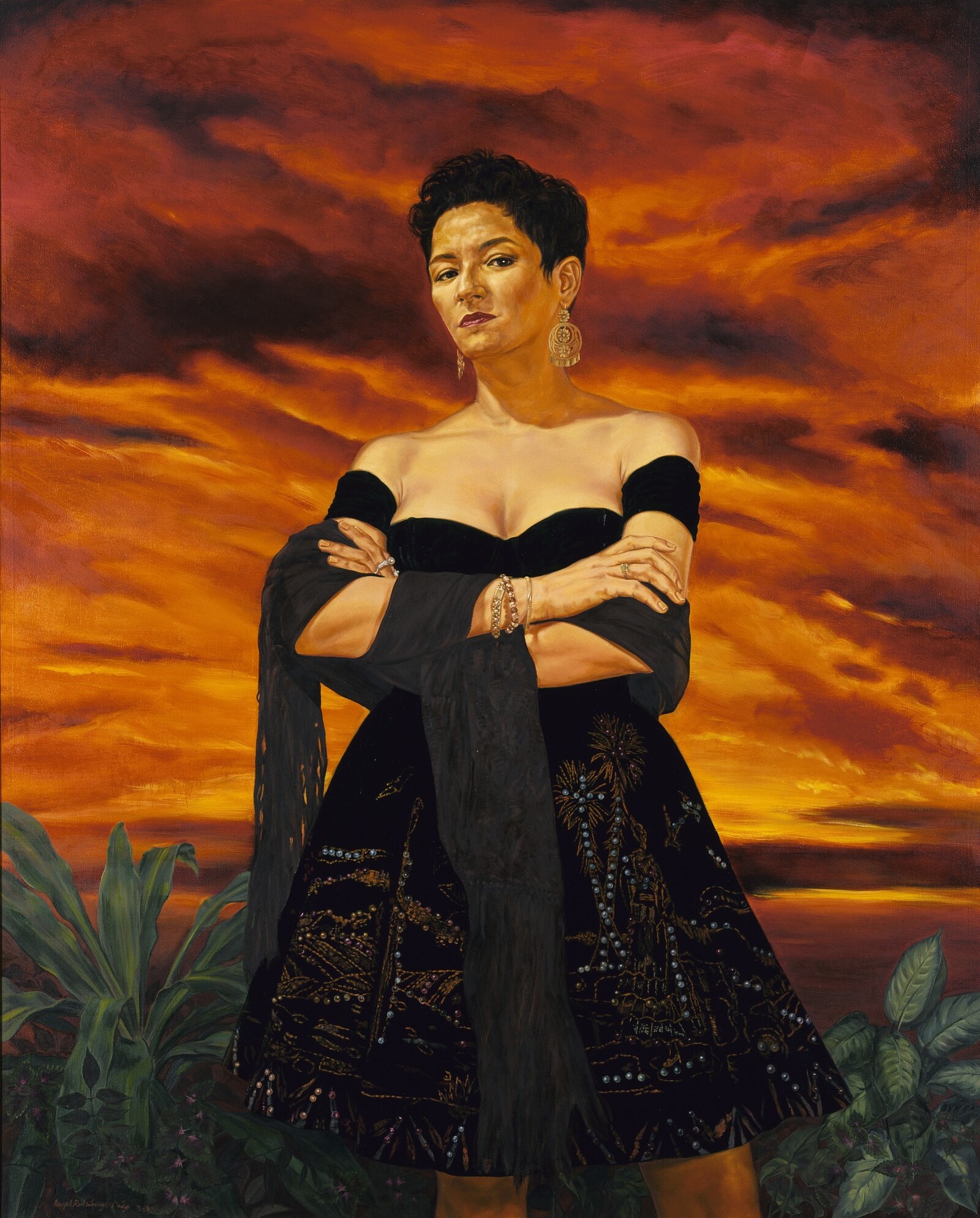July 31, 2021–January 14, 2024
Many Wests: Artists Shape an American Idea opens at the Boise Art Museum, Idaho, July 31.
Ideas about the American West, both in popular culture and in commonly accepted historical narratives, are often based on a past that never was, and fail to take into account important events that actually occurred. The exhibition Many Wests: Artists Shape an American Idea, examines the perspectives of 48 modern and contemporary artists who offer a broader and more inclusive view of this region. This exhibition presents an opportunity to examine previous misconceptions, question racist clichés, and highlight the multiple communities and histories that continue to form this iconic region of the United States. Working in various media, from painting and sculpture to photography and mixed media, the artists featured in the exhibition bring a nuanced and multifaceted history into view. Among the many voices and communities highlighted in this exhibition, Many Wests showcases artworks by artists who are Black, white, women, men, LGBTQ+, Native American, Asian American, and Latinx.
The exhibition is organized jointly by the Smithsonian American Art Museum and four nationally accredited art museums located in some of the fastest growing cities and states in the western region of the United States. It is the culmination of a five-year exhibition partnership made possible by the Art Bridges Foundation. The partner museums are the Boise Art Museum in Idaho; the Jordan Schnitzer Museum of Art in Eugene, Oregon; the Utah Museum of Fine Arts in Salt Lake City; and the Whatcom Museum in Bellingham, Washington. E. Carmen Ramos, acting chief curator and curator of Latinx art at the Smithsonian American Art Museum has led the collaborative curatorial effort.
Many Wests features artwork drawn from the permanent collections of all five collaborating museums and the exhibition will be presented at all five venues. The multi-city national tour begins at the Boise Art Museum (July 31 to February 13, 2022). The exhibition then travels to the Whatcom Museum (March 19 to August 21, 2022), the Jordan Schnitzer Museum of Art (September 26 to December 31, 2022), and the Utah Museum of Fine Arts (February 4 to June 11, 2023). The Smithsonian American Art Museum in Washington, DC, will be the final stop on the tour, where the exhibition will be on view from July 28 to January 14, 2024.
“This nationally touring exhibition, organized through a deeply collaborative process with our colleagues, presents the opportunity to see the West anew through the eyes of diverse modern and contemporary artists,” said Stephanie Stebich, the Margaret and Terry Stent Director of the Smithsonian American Art Museum. “Thanks to the generous support and encouragement from Art Bridges to think differently about how art is seen in communities across the United States, we see this as a model for both collection sharing and better understanding the rich and varied, and sometimes contradictory, stories of the American people and their histories.”
The team that organized the exhibition includes Amy Chaloupka, curator of art at the Whatcom Museum; Melanie Fales, executive director/CEO of the Boise Art Museum; Danielle Knapp, the McCosh Curator at the Jordan Schnitzer Museum of Art; Whitney Tassie, senior curator and curator of modern and contemporary art at the Utah Museum of Fine Arts; and Ramos, with Anne Hyland, the Art Bridges Initiative curatorial coordinator at the Smithsonian American Art Museum.
“Through strategies grounded in documentation, historical inquiry, cultural tradition, and aesthetic and material experimentation, the artists featured in this exhibition catalyze new understandings of a region and history that is so often submerged in stereotype and distortion,” Ramos said. “Their works address the past and present, revealing that ‘the West’ has always been a place of multiple stories, experiences and cultures. Organizing this exhibition with museum partners who are based in the American West itself allows us to feature many artists with deep ties to this region. This fact makes this exhibition especially meaningful.”
The exhibition is bilingual with English and Spanish labels, and organized into three sections: “Caretakers,” “Memory Makers” and “Boundary Breakers.” These overarching themes illuminate the different ways artists create countervailing views of life in and the history of the American West.
“Caretakers” examines how artists can redefine what it means to take care of themselves, their communities, and their futures. Featured artists include Ka’ila Farrell-Smith (Klamath Modoc), Awa Tsireh/Alfonso Roybal (San Ildefonso Pueblo), Patrick Nagatani, and Marie Watt (Seneca). Through their work, these artists demonstrate a commitment to the stewardship of land, history, language, and culture. They draw upon personal narratives, communal ties, and collective experience in the American West to honor the past and shape legacies for generations to come.
“Memory Makers” explores how artists act as transmitters of cultural memory as they bring forth neglected histories of the West through their work. Featured artists include Jacob Lawrence, Roger Shimomura, Christina Fernandez and others who go beyond the familiar accounts of European settlers and bring to light lived histories and identities that are essential to a truthful history.
“Boundary Breakers” highlights artists that unsettle common beliefs that inform the popular understanding of the American West. Their representations break away from myths and assert their continued presence despite centuries of omission and erasure by mainstream culture. They question simplified notions of identity, affirm their lived experiences, and refute romanticized imagery. Featured artists include Angela Ellsworth, Raphael Montañez Ortiz (Apsáalooke/Crow) and Angel Rodríguez-Díaz.
Credit
Many Wests: Artists Shape an American Idea is one in a series of American art exhibitions created through a multi-year, multi-institutional partnership formed by the Smithsonian American Art Museum as part of the Art Bridges Initiative.


